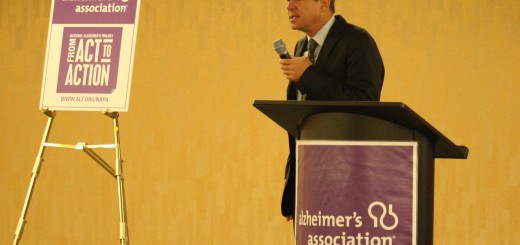People with dementia at risk in nursing homes?
If someone you care about is in a nursing home or residential care facility, you may have thought you could let your guard down now and then; but the truth of the matter is that we really can’t.
I just read some eye-opening news proving that the old adage “follow the money” is relevant, even in health care investigations. I remember reading a report back when I was responsible for developing employee benefit and health care programs for a large corporation. The report, by a pharmaceutical benefit management company, focused on educating pharmacists about the special needs of older adults. Certain medications are flat out inappropriate for older adults and others might be appropriate, but in different dosages. What may have worked when you’re 45 could be a disaster after 65. Great, I thought, some attention is being given to an older population that can both improve quality and reduce cost.
And, in fact, we can take comfort in the fact that the medication patients in nursing homes receive is reviewed by consultant pharmacists for the primary purpose of identifying unnecessary or potentially inappropriate drugs. Or can we?
As reported by the New York Times in its January 27 article Nursing Home Investigation Finds Errors by Druggists, a recent investigation by the California Department of Public Health found that in 18 of 32 investigations in California nursing homes last year, pharmacists “failed to red-flag cases in which residents were inappropriately prescribed powerful antipsychotic medications.”
Perhaps I am naïve but I thought that by now all medical providers recognized that certain types of these antipsychotic drugs are particularly dangerous for the elderly, and especially for people with dementia. Not so.
One such example occurred at the Greenhills Manor nursing home in Campbell, where a woman was given not one but two antipsychotic drugs (Seroquel and Risperdal) which were not only inappropriate by themselves but their combination could cause, according to investigators “life-threatening arrhythmias (irregular heartbeats).” To make matters worse, she was also given the antidepressant Trazodone, also linked to an increase in seizures among older adults. It’s amazing to me that although there was an opportunity for the pharmacist to note these irregularities or recommend changes upon reviewing this resident’s prescriptions, he told state investigators that he did not do so. If this were my spouse, mom or dad, I would be spitting mad!
Could it be that there is a link between inadequate reviews by pharmacists and the rate they were paid for the work? Well, the state investigators think so. They found that although there is already a law on the books that require nursing homes to pay a “fair rate” – which would theoretically reduce pharmacists’ incentives to endorse or extend expensive and potentially dangerous drugs – the majority of nursing homes where the state found patients who were inappropriately prescribed antipsychotic medications were paying below average fees for pharmacy services.
Unfortunately, California Advocates for Nursing Home Reform (who have released a report on this state investigation) stated that “not a single facility was issued a citation or fined.” Although these situations could result in poor quality at best, and dangerous situations at worst, there appear to be no consequences.
So, what should be done? An effort to amend the “anti-kickback” law to provide it with more teeth? Other policy changes? A review of financial incentives received by consulting pharmacists? I don’t know, but one thing is for certain: We need to continue to be advocates for nursing home residents.
If you are seeking more information about the use of antipsychotic and other medications for the treatment of behaviors associated with dementia, please check out the Alzheimer’s Association web site here: www.alz.org


















Proper medication management should be implemented. The condition and medical history of each patient should be carefully analyzed and their medications should be properly organized in order to ensure their health and safety.